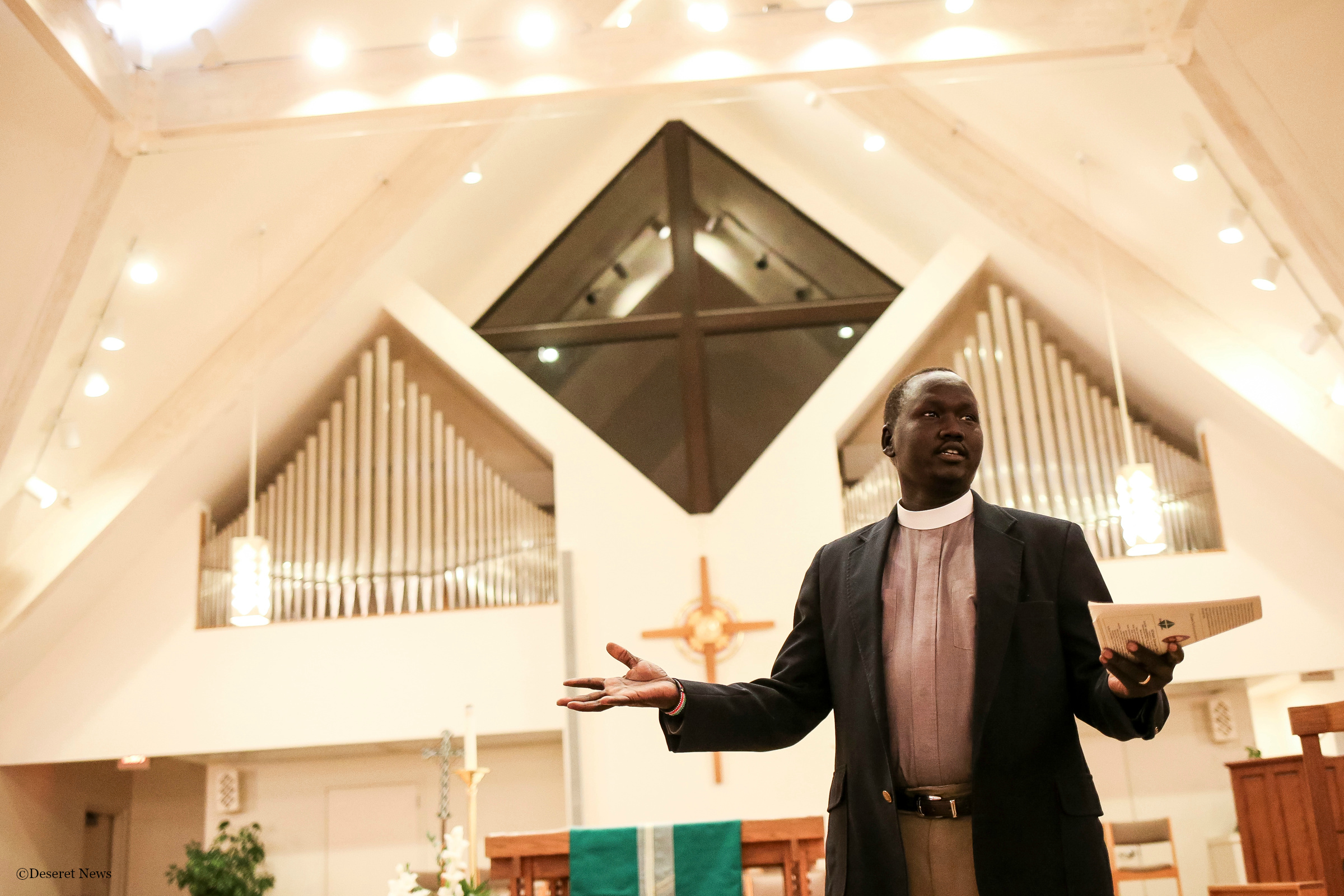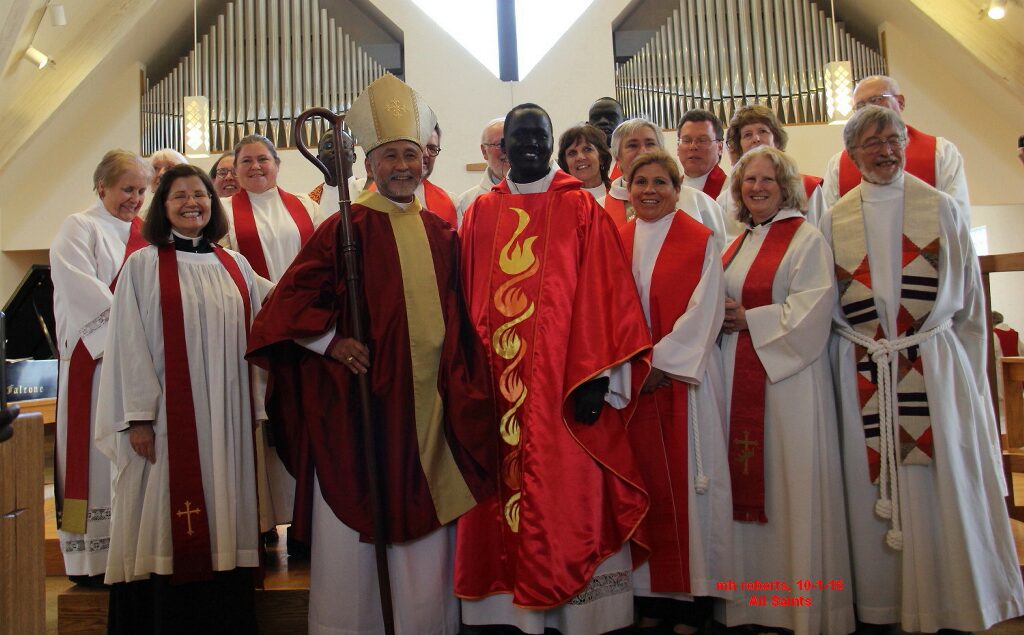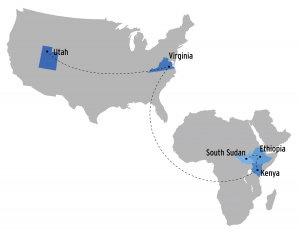From fleeing civil war in Sudan to becoming the leader of an Episcopal congregation in Salt Lake City, the Rev. Gabriel Garang Atem said he has seen God’s hand in his life.
“After all the difficult things that I had survived — which is attacks, thirst, starvation, sickness, hunger and (exposure to) the elements — I have come to the conclusion that God was watching over me for my life,” Atem said.
A Lost Boy’s refuge in God
Atem trekked across Africa with other survivors of the Sudan civil war, known as the Lost Boys of Sudan, toward safety in various refugee camps when he was 7 years old. Atem said God was protecting them, and developing spirituality was the only way he could continue.
Atem said he chose to become a spiritual leader and care for God’s children because of God’s protection and guidance in his life.
Atem first wanted to become a priest while he ministered as a teenager in the refugee camps.

David Bul spent time with Atem in the refugee camps and is now a member of the Sudanese congregation’s leadership team at the All Saints Episcopal Church. Bul said Atem taught in Sunday school, led choirs in hymns and spiritual songs and led dances at services in the refugee camps.
“There is one thing we haven’t (forgotten) about. … We haven’t (forgotten) about our Christianity,” Atem said. “We haven’t (forgotten) about the time to do worshippings and prayers. … Everywhere we go, we had to have at least a place for worship.”
The path to priesthood
Atem attended the All Saints Episcopal Church with 16 other Lost Boys when he arrived in Utah.
As the Sudanese attendance grew, church leaders wanted to organize a Sudanese congregation. This way, the entire services could be in Dinka, their native language, Atem said. Leaders considered ordaining Atem to the priesthood to lead the congregation.
Atem established a youth group for the Sudanese children during this time. Children learn the Dinka language, traditional songs and dances, and other spiritual training in the group, Atem said.
Atem was ordained a priest on Oct. 1, 2016, after years of preparation and training. He is now a full-time clergy member and leader of the Sudanese congregation.

A growing congregation
The Rev. Trace Browning has worked with Atem for several years at All Saints. Browning said Atem brings a great perspective because of his life experiences.
“Gabriel is a person of great faith and joy who loves God and doing God’s work,” Browning said. “It is a pleasure to work with him.”
Browning said the Sudanese congregation worships with traditional music and dance in Dinka.
“The Sudanese congregation is full of life and joy, and this comes through in their worship,” Browning said.
Bul said Atem visits the sick and helps people in legal trouble to become better people.
“I think a lot of things are getting better one after the other since he became a priest,” Bul said.
Bul said the congregation has grown since Atem was ordained a priest. Now people are bringing their families to All Saints from Africa, Bul said.
“He has the power to do things now,” Bul said. “I think that’s what triggered all the people who are interested to come over time.”
Refugees today

Atem said he has noticed Utahans, including the governor, come together to help others in a way no other state has.
“It shows their goodness, and they are faithful and being nice and kind to one another, and I would love to continue in the same spirit,” Atem said.
Atem said he encourages people to welcome refugees.
“We need to think about their situation as our situation,” Atem said. “We here in this country, or elsewhere, need to see each other as brothers and sisters. We need to work for a better world. We can be able to change the world to a great place for people to live peacefully.”




